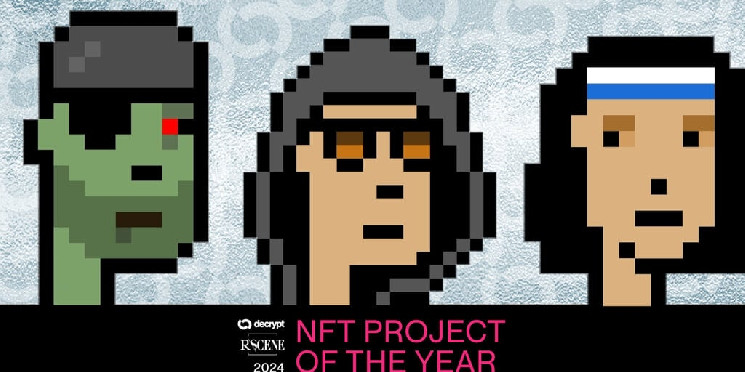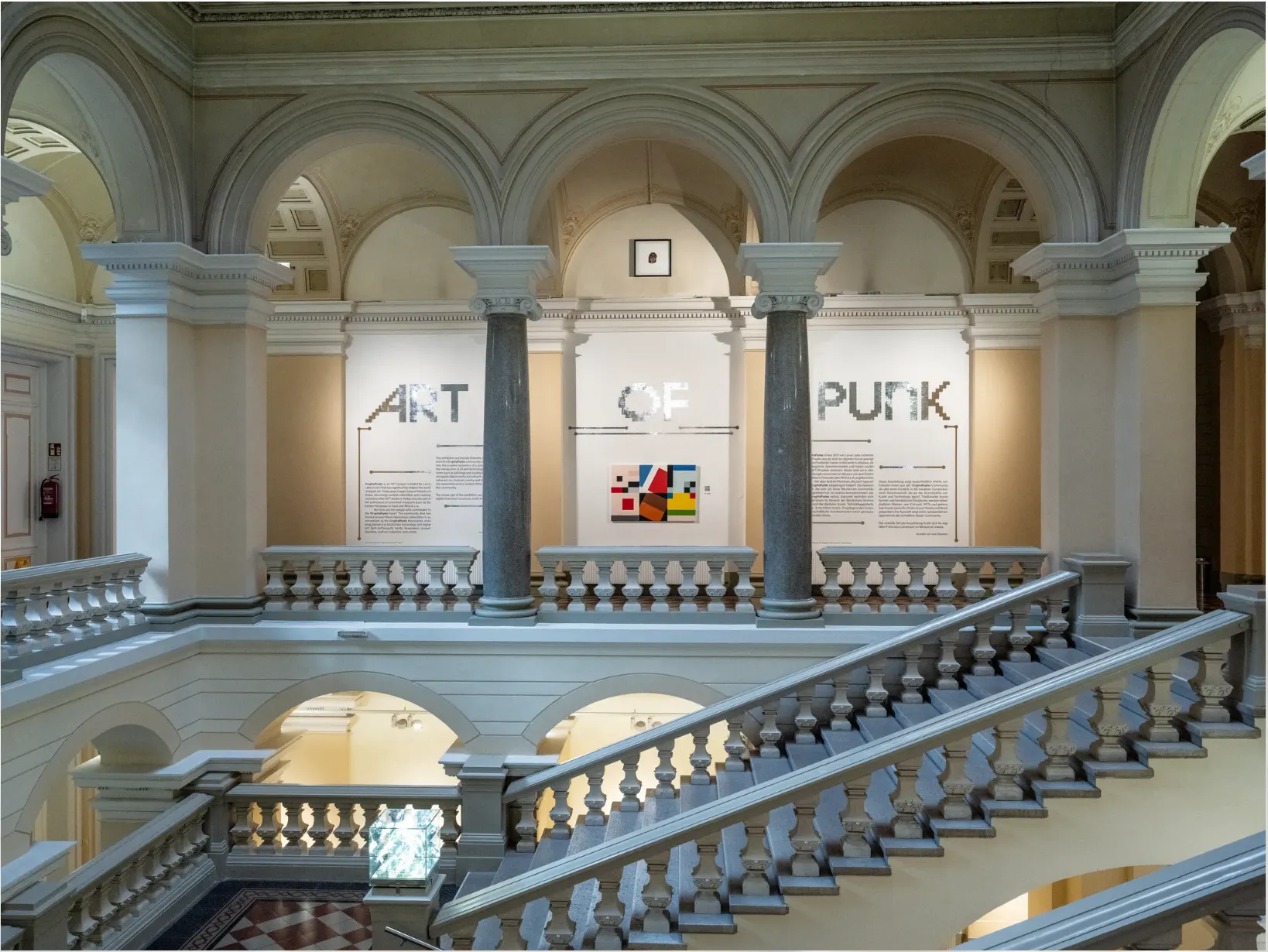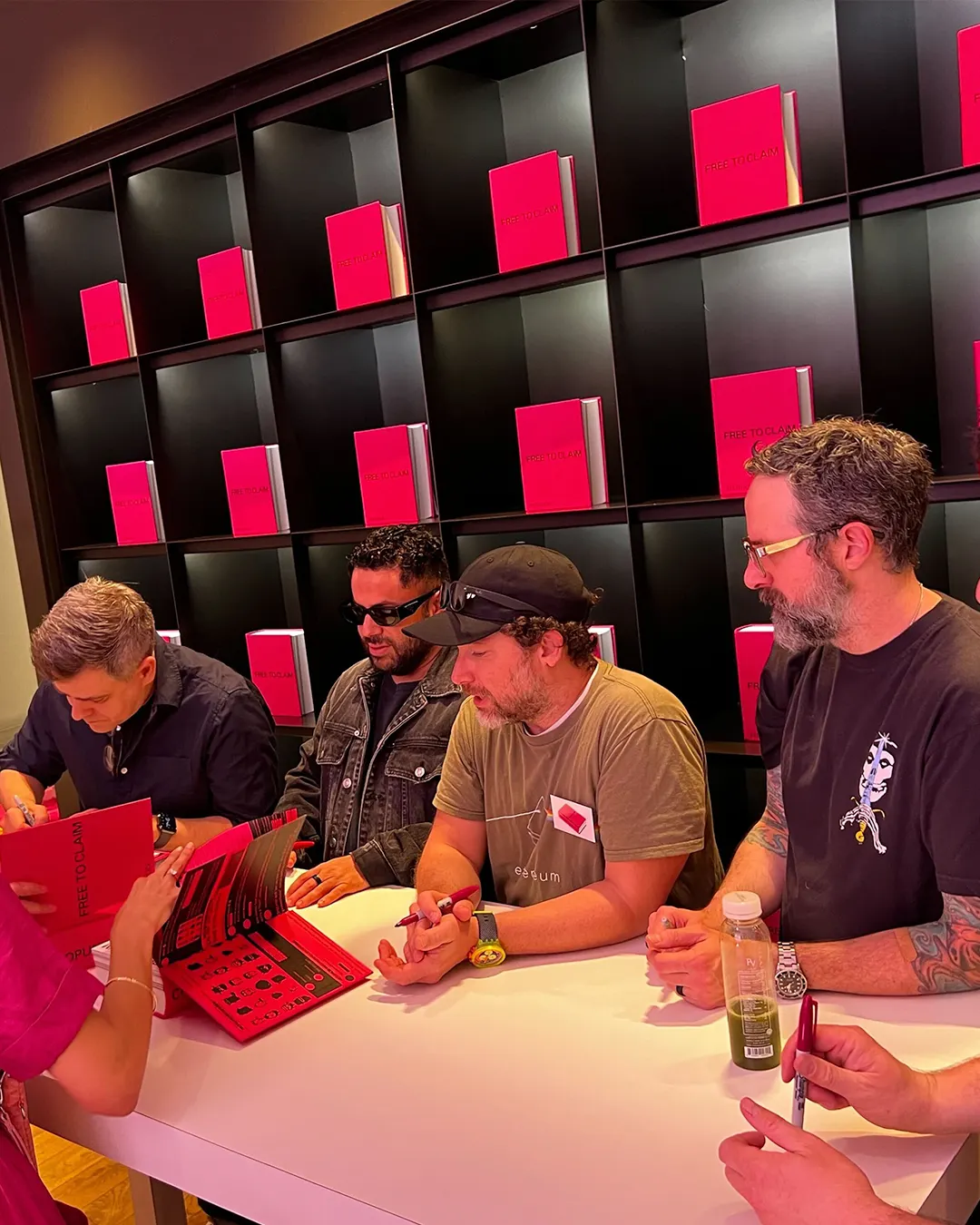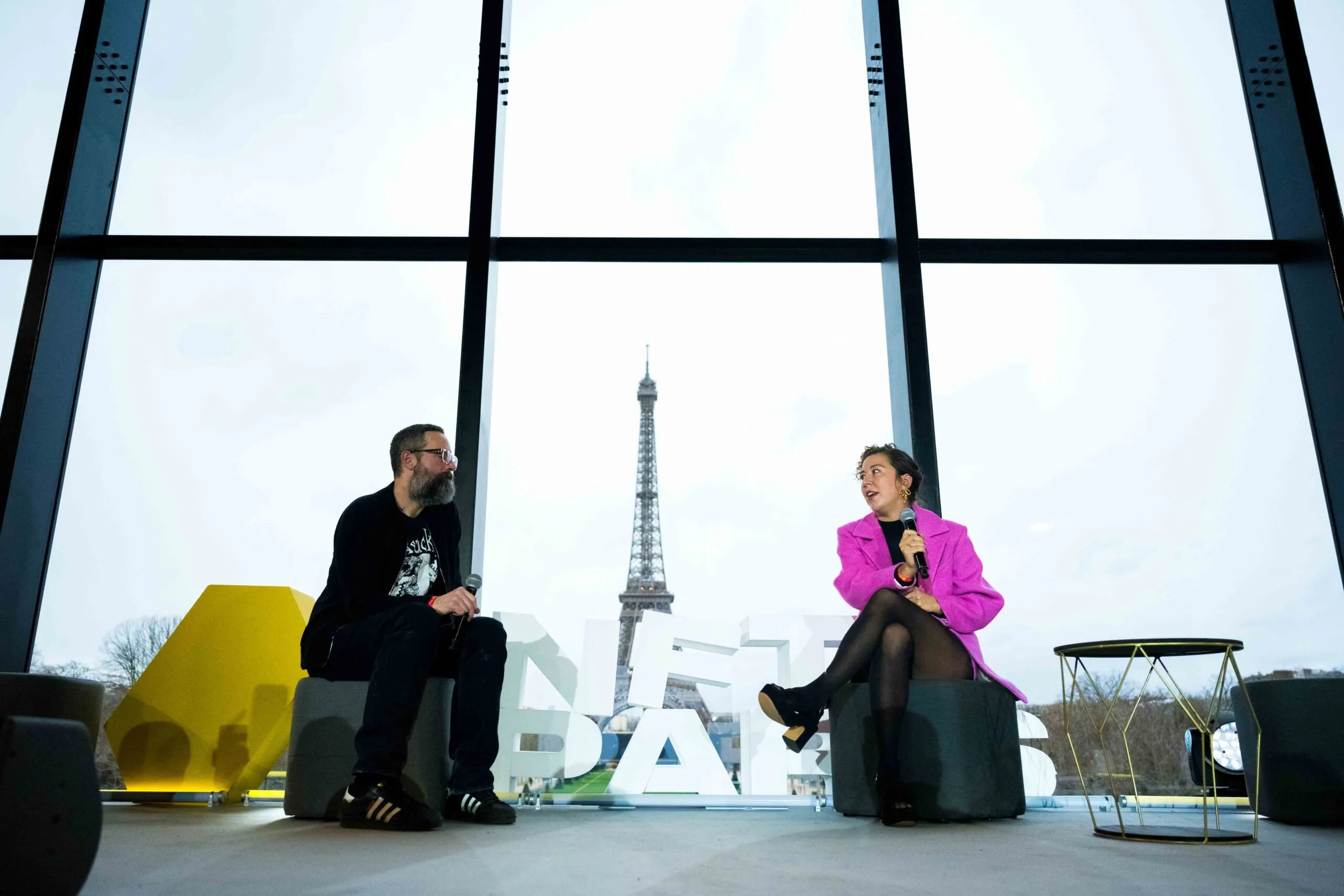Decrypt’s 2024 NFT Project of the Year: CryptoPunks

Earlier this month, Pudgy Penguins came within striking distance of dethroning CryptoPunks as the most expensive NFT collection in the world.
It’d been a long, long time since any other brand had come close to accomplishing that feat, and Pudgy had wind in its sails: Riding momentum from an upcoming token airdrop, the collection soared to unbelievable highs, exploding from a floor price of $19,000 at the start of November to more than $138,000 by mid-December.
It looked like the flip might happen. Then the PENGU token airdrop went live and—in typical crypto fashion—Pudgy Penguins collapsed in value by over 55% within a matter of hours.
Left untouched, at the top of the heap, was CryptoPunks. The episode perfectly encapsulated the prevailing NFT narrative of 2024: While other collections worked overtime to drive demand via incentives and the promise of tokens, CryptoPunks appeared to effortlessly float upwards in cultural significance, social cachet, and, of course, value.
Tokens launched and/or confirmed:
Pudgy Penguins

Azuki
Doodles
Creepz
Cool CatsMoonbirds?
— seedphrase (@seedphrase) December 19, 2024
“While other projects struggle to justify themselves with elaborate roadmaps, CryptoPunks still stand apart as cultural icons,” Daniel Rosario, a CryptoPunks holder and MetaMask’s ecosystem engagement manager, told Decrypt.
“Owning a Punk has come to represent a pure, decentralized form of digital identity—unbound by corporate influence, and celebrated for what it is, rather than what it might someday become,” he added.
As crypto becomes increasingly intertwined with Wall Street, Washington, and the pillars of global power it once eschewed, CryptoPunks have emerged as an increasingly potent time capsule of the industry’s founding values: decentralization, authenticity, and genuine novelty.
Words that have since become hollow marketing slogans in the NFT ecosystem—like community and utility—have undeniable meaning in the case of Punks. The collection, created as an experiment in 2017 and offered to minters for free, came years before NFTs were a coherent asset class.

An exhibition on CryptoPunks at the Museum Francisco Carolinum in Linz, Austria in fall 2024. Credit: Rainer Hosch Studio
In those early days, CryptoPunks embodied not just the promise of non-fungible digital tokens, but also of artworks living and traveling securely across the internet—a concept that has since revolutionized the art world. And in the years that followed 2017, the CryptoPunks online community offered a venue for holders to communicate and exchange ideas that would come to take over the crypto world.
One of those early adopters, the pseudonymous fashion entrepreneur gmoney, says the Punks community had a formative influence on his crypto trajectory, back in late 2020. In mid-December, Gmoney’s crypto-infused luxury and fashion label, 9dcc, launched its latest offering, a series of mystery “Black Box” NFTs. One of those boxes, naturally, included a rare CryptoPunk.
Gmoney told Decrypt he decided to associate CryptoPunks with his newest sought-after collection—and not any other NFT brand—because Punks represent the essence of his entrance to, and relationship with, crypto.
“There’s no better way to hopefully enter the next bull market than with something similar, a tribute to that,” the entrepreneur said.
Major players in luxury and the art world continue to flock to CryptoPunks for similar reasons. Earlier this year, the jeweler Swarovski debuted an homage to CryptoPunks supported by the auction house Christie’s. That flashy collaboration built on prior Punks projects and showcases put on by the likes of Tiffany & Co. and some of the world’s most prestigious art institutions.

Prominent CryptoPunks holders including Gmoney and Erick Calderon, aka Snowfro, at a signing of a new book on CryptoPunks released in 2024 by Yuga Labs. Credit: Yuga Labs
Over the course of 2024, that intangible but steadily increasing cultural value rocketed CryptoPunks to record sales, even as the rest of the NFT market remained depressed. In March, a rare CryptoPunk sold for $16 million, in the second-largest sale for the collection ever. Weeks later, another Punk sold for $16 million. The following month, a third fetched a price tag of $12.4 million.
Perhaps ironically, the defiantly independent CryptoPunks brand is currently under the stewardship of Yuga Labs, NFT world’s largest corporation.
In May, Yuga stirred controversy after launching an “Artist in Residence” program designed to create new NFT collections riffing on CryptoPunks. The backlash to the program’s debut collection, designed by the celebrated contemporary artist Nina Chanel Abney, was swift and resounding. Much of the pushback asserted that Yuga had no place trying to monetize CryptoPunks, and that such moves would corrupt the collection’s essence.
Complicating that narrative, however, was the fact that much negative attention generated by Abney’s CryptoPunks project consisted of an “anti-woke” objection to the project’s celebration of racial and gender diversity.
Natalie Stone, Yuga’s CryptoPunks lead, said that while she still stands by Abney’s project on its artistic merits, the negative reaction it garnered led Yuga to reevaluate its CryptoPunks strategy.
“I think the backlash clarified the reverence that people feel towards CryptoPunks,” Stone told Decrypt. “The monetization of the collection feels like an erosion of the principle of what Punks mean.”
Since May, Stone said, Yuga has approached the collection more cautiously, and has moved away from attempts to expand or innovate it. Instead, the company has redoubled its efforts to cement the CryptoPunks legacy, particularly in the realms of mainstream art and culture.
“I want a CryptoPunk to be in every art history book you read that surveys the great artworks of our time,” she said.

Yuga’s CryptoPunks lead Natalie Stone speaks at NFT Paris in February 2024. Credit: Yuga Labs
At the upper echelons of the traditional art world, it is increasingly clear that CryptoPunks occupy a league of their own relative to other NFT projects. Punks have featured at the Centre Pompidou, Europe’s largest modern art museum, and the Los Angeles County Museum of Art; they consistently go up at auction alongside cultural treasures at Sotheby’s and Christie’s.
Stone points to a new book released this year by Yuga, chronicling the history of CryptoPunks, as evidence of the kind of cultural footprint the company can help develop for the NFT collection that would otherwise be difficult for a decentralized community to create.
At the end of the day though, Stone says she is now keenly aware of the fact that CryptoPunks’ unique value proposition lies in its coveted status as “effortlessly cool.”
“Anytime you try to engineer cool, you fail,” she said.
“Trust me,” she added. “I’ve tried.”





 Bitcoin
Bitcoin  Ethereum
Ethereum  Tether
Tether  USDC
USDC  Dogecoin
Dogecoin  Cardano
Cardano  TRON
TRON  LEO Token
LEO Token  Chainlink
Chainlink  Stellar
Stellar  Hedera
Hedera  Litecoin
Litecoin  Bitcoin Cash
Bitcoin Cash  Monero
Monero  Dai
Dai  OKB
OKB  Cronos
Cronos  Gate
Gate  Ethereum Classic
Ethereum Classic  VeChain
VeChain  Cosmos Hub
Cosmos Hub  Algorand
Algorand  KuCoin
KuCoin  Maker
Maker  Stacks
Stacks  Theta Network
Theta Network  Tether Gold
Tether Gold  Tezos
Tezos  IOTA
IOTA  Zcash
Zcash  TrueUSD
TrueUSD  NEO
NEO  Polygon
Polygon  Synthetix Network
Synthetix Network  Dash
Dash  Zilliqa
Zilliqa  0x Protocol
0x Protocol  Qtum
Qtum  Basic Attention
Basic Attention  Decred
Decred  Holo
Holo  Siacoin
Siacoin  Ravencoin
Ravencoin  DigiByte
DigiByte  NEM
NEM  Enjin Coin
Enjin Coin  Ontology
Ontology  Waves
Waves  Nano
Nano  Hive
Hive  Lisk
Lisk  Status
Status  Pax Dollar
Pax Dollar  Huobi
Huobi  Numeraire
Numeraire  Steem
Steem  BUSD
BUSD  OMG Network
OMG Network  Ren
Ren  Bitcoin Diamond
Bitcoin Diamond  Bitcoin Gold
Bitcoin Gold  Augur
Augur  HUSD
HUSD